College of Human Sciences
Exploring the dark side of digital information flow
Prof Julie Reid from the Department of Communication Sciences in the College of Human Sciences delivered her virtual inaugural lecture titled "Digitising 'The Big Lie': Shrinkage Funnels Stemming from Algorithmic Content Curation and the Related Consequences for Media Exposure Diversity toward New Governance Imperatives". The lecture, held on 30 November 2023, not only showcased Reid's prestigious career, but also shed light on the hidden consequences of algorithmic content curation for media diversity in the digital age.
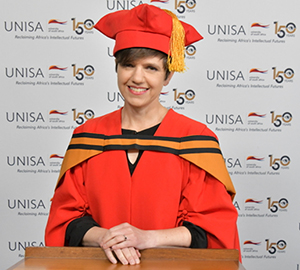
Prof Julie Reid
Reid began her lecture by highlighting the prevailing research in various academic fields on algorithms and their social influence, ranging from disinformation and privacy rights to hate speech and election interference. However, she took a unique approach, stating, "In my lecture, I explore the potential of algorithmic recommender systems to diminish media diversity in online exposure, drawing on internet governance and surveillance studies together with insights from psychology, cultural studies and semiotics".
The illusion of truth
She spoke passionately about the implications of algorithmic content curation, linking it to normative ideals of media diversity and fundamental human rights. "I also explain how algorithmic content curation facilitates the illusory truth effect and how that is generally bad for society," she added, emphasising the integral connection to the digital covert extraction sector underlying the business models of major tech companies that have become central to modern life.
Building on this exploration, Reid introduced a groundbreaking concept she developed: the "shrinkage funnel". This concept serves as a conceptual metaphor, explaining how digital recommender systems routinely constrain the variety of information users encounter online, putting our daily information diets at risk of becoming overly restricted.
Protecting personal choice
Reid provided a theoretical framework for policy interventions to safeguard digital exposure diversity. She addressed the urgent need to tackle the issue of algorithmic content curation, which undermines users' personal choice sovereignty in the online realm.
Reflecting on her distinguished career, Reid's extensive qualifications and accomplishments underscore her commitment to advancing knowledge in the field of communication sciences. From co-founding the Media Policy and Democracy Project (MPDP) to serving as the former President of the South African Communication Association (SACOMM), she has left an indelible mark on the academic landscape.
Her numerous accolades, including the 2017 Best Paper Award at the International Association for Media and Communication Research Annual Conference, reflect her dedication to understanding the complexities of media diversity in the digital age.
In her advice to aspiring academics, Prof Reid encouraged a continuous quest for knowledge, stating, "Remain pathologically curious so that you never stop learning". As her inaugural lecture sparks conversations and calls for new governance imperatives, Reid stands at the forefront of addressing the challenges posed by algorithmic content curation in the evolving landscape of digital information flow.
* By Tebogo Mahlaela, Communication and Marketing Specialist, College of Human Sciences
Publish date: 2023-12-04 00:00:00.0

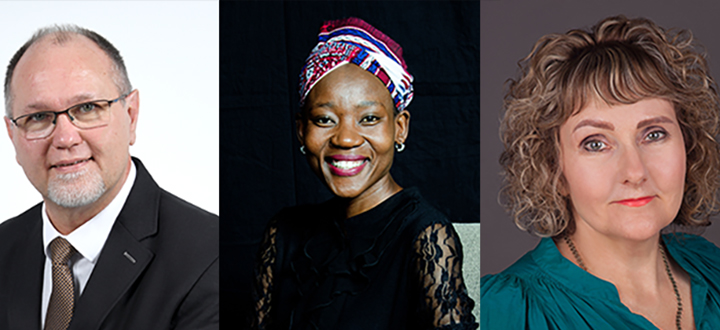 Unisa shows that developing countries are equal partners in research management and administration capacity development
Unisa shows that developing countries are equal partners in research management and administration capacity development
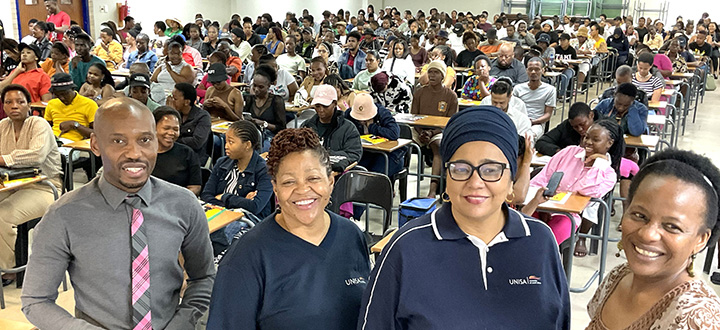 Unisa KZN Career Fair bridges the gap between students and employers
Unisa KZN Career Fair bridges the gap between students and employers
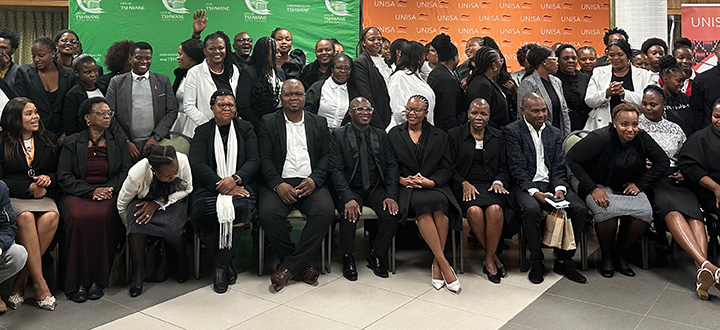 Unisa academics join hands to celebrate World Social Work Day
Unisa academics join hands to celebrate World Social Work Day
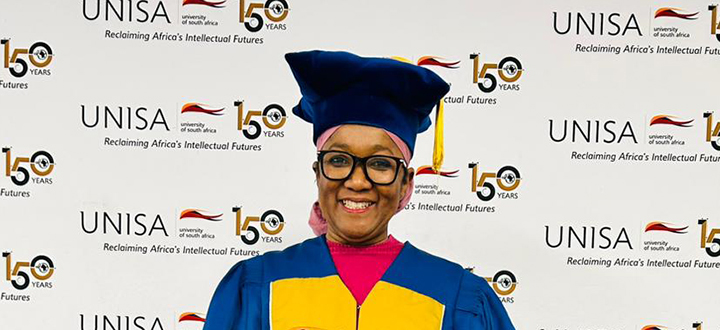 Unisa community engagement initiative targets school underperformance
Unisa community engagement initiative targets school underperformance
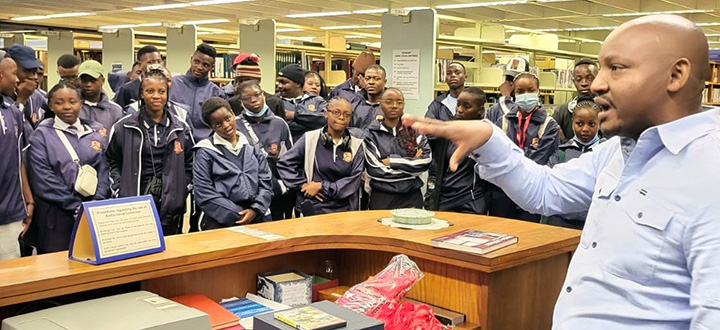 Library tour introduces learners to the wonderful world of Unisa
Library tour introduces learners to the wonderful world of Unisa